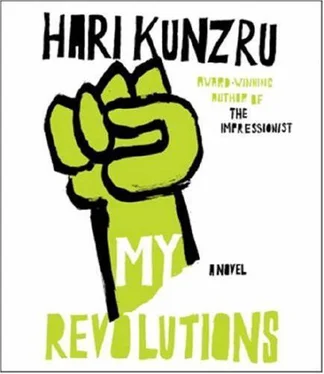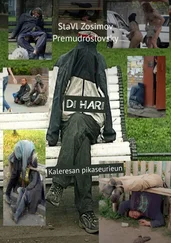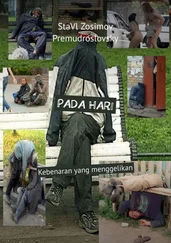HOMELESS? COME HERE!
As I watched, another couple of cars drew up.
“Might as well drop some more leaflets.” Patty reached into the box, took a handful and threw them over the side, where they fluttered down into the street. Behind us, Anna paced up and down, her hands clasped behind her back, like a general.
Chatsworth Mansions was part of a battle with abstraction. We’d been talking for weeks about our disillusionment with the antiwar movement and our feeling that the only political way forward was through practical action: building the new world, not marching for it. The Free Food had encouraged us, but the task seemed too difficult. Housing was an area in which we knew we could make a difference. As the warmth faded from the air, so did the atmosphere of playfulness that had cocooned our little group. London felt tenuous, poised. I couldn’t tell what was making me so edgy— the sense that things were about to change or the fear that they wouldn’t. If there wasn’t a transformation, what would I do? I brushed the idea aside. We were living through a historic upheaval, a time of chance.
Patty and her husband, Gavin, were newly qualified lawyers,
volunteering at an advice center in the East End. They were a pleasant couple, serious about their work, politically committed in the way a lot of — what do estate agents call them? — young professionals were back then. I liked Patty. She worked hard for her clients. We’d met at some talk or other and soon the two of them were coming over regularly to Lansdowne Road. They were, by temperament, less intense than our group, more rooted in the world as it was than the one they said they wanted to see. Compared to us, they lived a conventional life, paying rent, going to the office. I remember them as people who knew how things functioned. They talked about using the system for progressive ends. In retrospect, I think their politics were entirely fluid, their professed radicalism a product of the time and place, rather than any deep dissatisfaction with the order of things. Anna, I remember, never found them convincing. At the time, I thought she was just jealous, because Patty and Gavin were devoted to each other, while Sean had met a young Irishwoman called Claire, whom he’d moved into Lansdowne Road and was pushing as a full member of the collective.
I thought reflexively of Anna and Sean as a couple though, looking back, my story about jealousy seems wildly off the mark. They slept together sometimes. Otherwise they didn’t behave like a couple at all. Nevertheless it was obvious they shared some kind of past, some experience that gave them rights over each other. I found out Sean had helped Anna tunnel her way out of Chelsea; if you believed his version, she’d more or less got onto the back of his bike one day and left her husband. If anyone was jealous it was me, acutely conscious of the electricity in Sean and Anna’s detachment from each other.
Claire, Sean’s new chick, was a pale, rather sepulchral blonde with long hands and an oval face that made her resemble a figure in an early medieval painting. It was a look she emphasized with shawls and long, flowing dresses. Anna quickly went to war against her, criticizing her for various social and political faults in the long and often bruising group arguments that were becoming a regular
Lansdowne Road ritual. To my surprise, Claire didn’t buckle, but often gave as good as she got. She cut her hair and started to wear work clothes. Anna backed down. Anna’s own hair was now very short, almost shaved to her scalp. I’d watched her do it, rolling myself a joint at the kitchen table as she leaned over some sheets of newspaper and hacked away with a pair of scissors. Now she looked like one of the mod girls you saw down in Shepherd’s Bush, smoking cigarettes and waiting for their boyfriends.
Everyone from Lansdowne Road was up on that roof, lying on their stomachs and looking over the parapet. There were people from Pat Ellis’s committee, whatever it was called, from three or four east London communes and activist groups. Miles was there with his camera, showing off to one of his teenage Guineveres. Uther, the usher from Free Pictures, was there too, waving a wand at Hackney Marshes, trying to chant the gas towers down. It’s amazing to think Pat Ellis could ever have been part of the same enterprise as Uther Pendragon.
For the site of our next action we chose a boarded-up terraced house near the overpass in Ladbroke Grove, one of a row that had been forcibly purchased by the council when the street was cut in two to build the road. Connections were growing. Our nameless Lansdowne Road group was now part of a spidery network. A lot of people seemed to be thinking as we did.
We worked on the house like maniacs. In the approach to Christmas Eve we spent more than a week replacing rotten floorboards, painting walls, and reconnecting the water and electricity. I wired up lights. A plumber friend installed a bath and toilet salvaged from a bombsite near Free Pictures. With Anna I traveled round in Rosa, skip-raiding and picking up donated furniture. By the time we’d finished, the house looked great. Not luxurious, but spick and span. A home for a homeless family.
Once we had the renovation under way, the big question was who should live there. We wanted to do something that was practical as well as symbolic and for that we needed a family that was indisputably in need. At the time local-government hostels were
more like barracks than homes. They were run along the lines of Victorian poor houses and the people staying in them were treated like morally dubious dirt. They were grim, overcrowded and overregulated. Many only admitted women and children, husbands having to fend for themselves. Families who complained or “misbehaved” would be summarily evicted, at which point social workers would often take the children into care. They were cruel and coercive. We saw them as a tool the state used to discipline the poor.
We found a couple called the Castles, who’d been in a shelter for a year. They had three young children, the oldest of whom was seven. Bill Castle had been laid off from a bed factory; he was a sallow Brummie with a persistent cough and an air of utter defeat. His wife, Ivy, was visibly the stronger of the two. Anna took me to meet her in a caff somewhere up near Wormwood Scrubs. As she talked, her two little boys played with the salt and pepper, opening sugar packets and tugging at her coat as she tried to manage the baby and concentrate on what we were asking her to do. As far as she was concerned, she told us warily, anything would be better than where they were.
I got to know the Castles much better when the occupation started. Early in the morning on Christmas Eve, we picked up Ivy and the kids from the hostel, bursting through the front door past the warden and the woman from the welfare office. We were deliberately confrontational, swarming through the building and making lots of noise, trying to break down the oppressive air of the place. The warden was furious, telephoning his bosses as soon as we were inside. One or two of the staff tried to block our way. Nevertheless, I remember the action as a festive affair. Jay was dressed as Santa Claus. I gave sweets out to the kids. It was like a kidnap in reverse. The two little Castle boys had a great time, chattering and making pow-pow fingers out of the window.
We calculated that if we raised enough fuss, the council would be shamed into rehousing the Castles. Even if they didn’t, we were determined to occupy the place at least until the new year. Since
we weren’t certain how the authorities would react, we kept the boards on the downstairs windows and barricaded the front door. We draped a banner across the front, Pat Ellis rang the press, and by lunchtime we had a crowd of supporters on the street outside, singing carols and waving banners and giving interviews to newspaper hacks while photographers snapped pictures of masked protesters waving from the upstairs windows. We’d written a statement informing people that we’d housed a homeless family in protest at the council’s policy of keeping usable buildings empty, their inaction on social problems and the inhumanity of government hostels. We demanded that the Castles should either be immediately rehoused or allowed to remain in the place we’d found for them.
Читать дальше












